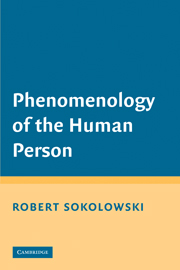19 - Conclusion, with Henry James
Published online by Cambridge University Press: 05 June 2012
Summary
Categorial or syntactic structure makes it possible for us to rise from sensibility to reasoning and understanding. Philosophers have developed special words to name the various intellectual activities, such as apprehension and judgment. These words are used metaphorically at first. In the case of these particular terms, the original uses signify not mental activities but the bodily action of grasping something and the juridical action of declaring someone to be innocent or guilty. As time goes on and the philosophical problems become routine, the words take on the character of technical terms and we forget that they had a metaphorical beginning. We assume that they name obviously verifiable things, things that we can simply point out. We begin to think that the words have been devised in response to entities that we directly experience in our ordinary worldly involvements, as apple is devised to name an apple. In fact, the pre-philosophical overtone of such philosophical words is never entirely lost. Our access to a philosophical understanding of what it is to understand always remains closely tied to our pre-philosophical thinking, and all the words used in philosophy retain to some extent their pre-philosophical and pre-metaphorical significance. Philosophical language, furthermore, needs always to be revivified; we need to go back to the original meanings of the words and show how the words are tilted to function within the new stance introduced by philosophy.
- Type
- Chapter
- Information
- Phenomenology of the Human Person , pp. 304 - 324Publisher: Cambridge University PressPrint publication year: 2008



